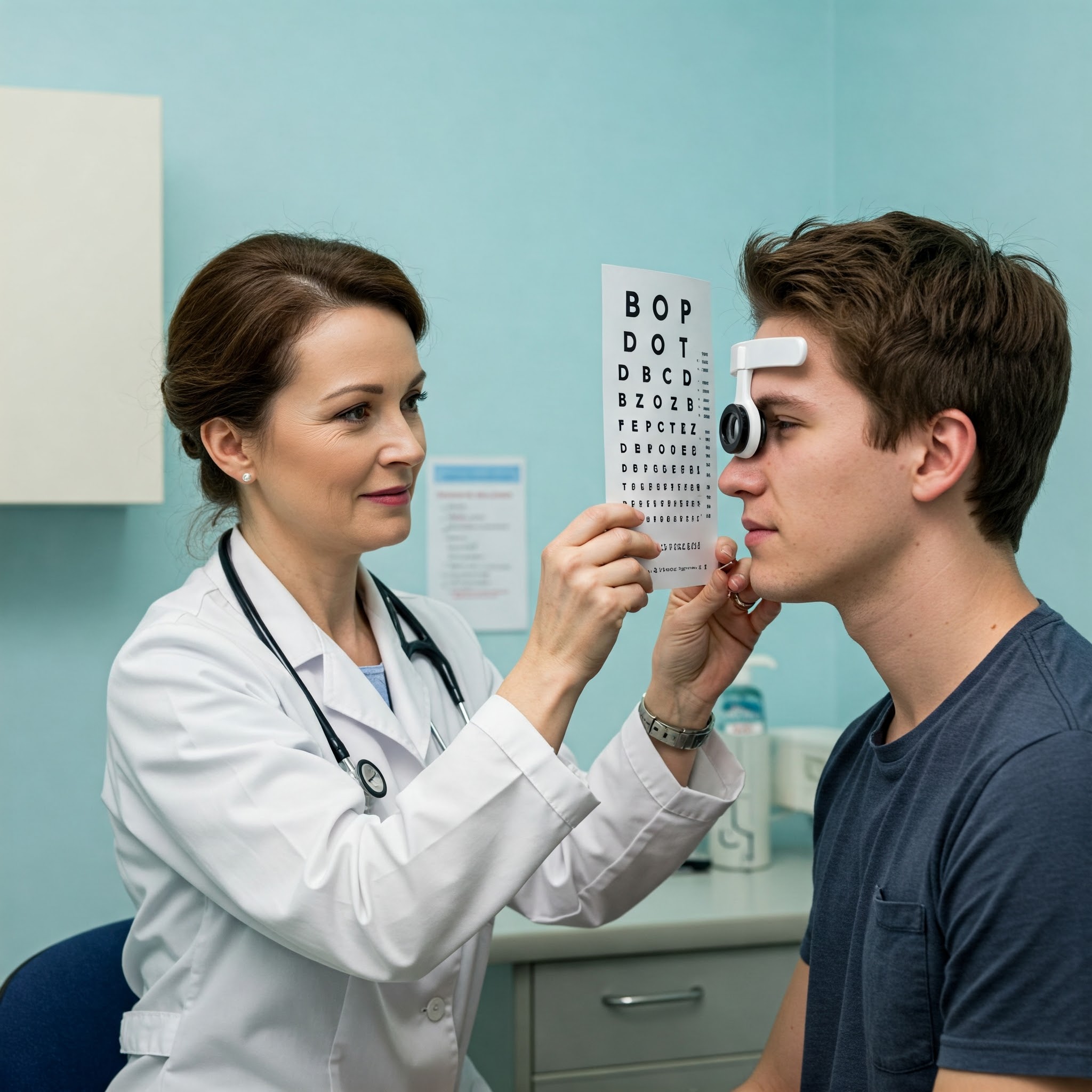Blurry Vision: Common Causes and When to Seek Medical Help
Blurry vision can be harmless or a sign of serious eye or health issues. Learn the common causes, warning symptoms, and when to consult a doctor.

Blurry vision is a common eye condition that can affect people of all ages. It can be caused by a number of different factors, including:
If you are experiencing blurry vision, it is important to see a doctor to determine the cause and get treatment. Early diagnosis and treatment can help prevent further vision loss.
Here are some of the common causes of blurry vision:
Refractive errors
Refractive errors are the most common cause of blurry vision. They occur when the shape of the eye does not allow light to focus properly on the retina. Refractive errors can be corrected with glasses, contact lenses, or surgery.
Eye strain
Eye strain is another common cause of blurry vision. It can be caused by staring at a screen for too long, such as a computer screen or a smartphone screen. It can also be caused by reading in dim light or driving at night. Eye strain can cause your eyes to feel tired, achy, or even blurry. Taking breaks from screens and making sure you have good lighting can help reduce eye strain.
Dry eye
Dry eye is a condition that occurs when the eyes do not produce enough tears or when the tears evaporate too quickly. This can cause the eyes to feel dry, irritated, and blurry. There are a number of treatments for dry eye, including artificial tears, prescription eye drops, and punctal plugs.
Age-related macular degeneration (AMD)
AMD is a condition that affects the central part of the retina, which is responsible for central vision. It is the leading cause of vision loss in people over the age of 60. AMD can cause blurry vision, as well as other vision problems, such as difficulty seeing at night. There are a number of treatments for AMD, including medication and surgery.
Cataracts
Cataracts are a clouding of the lens of the eye. They are a common condition in older adults. Cataracts can cause blurry vision, as well as other vision problems, such as difficulty seeing at night or in bright light. Cataracts can be treated with surgery.
Glaucoma
Glaucoma is a condition that causes damage to the optic nerve, which carries information from the eye to the brain. It is a leading cause of blindness. Glaucoma can cause blurry vision, as well as other vision problems, such as tunnel vision and loss of peripheral vision. There are a number of treatments for glaucoma, including medication and surgery.
Diabetic retinopathy
Diabetic retinopathy is a condition that damages the blood vessels in the retina. It is a common complication of diabetes. Diabetic retinopathy can cause blurry vision, as well as other vision problems, such as floaters and blind spots. There are a number of treatments for diabetic retinopathy, including laser surgery and medication.
Uncontrolled diabetes
Uncontrolled diabetes can also cause blurry vision. This is because high blood sugar levels can damage the nerves and blood vessels in the eyes.
High blood pressure
High blood pressure can also damage the blood vessels in the eyes, which can lead to blurry vision.
Certain medications
Some medications can cause blurry vision as a side effect. If you are taking any medications, be sure to talk to your doctor if you experience blurry vision.
When to seek medical help
You should see a doctor if you experience any of the following:
Your doctor will be able to determine the cause of your blurry vision and recommend the best course of treatment.
Prevention
There are a number of things you can do to help prevent blurry vision:
By taking these steps, you can help keep your eyes healthy and prevent blurry vision.
In addition to the information above, here are some other things you can do to help improve your vision:
Blurry vision can be harmless or a sign of serious eye or health issues. Learn the common causes, warning symptoms, and when to consult a doctor.
Discover how your baby grows each week with our detailed pregnancy guidance. Learn what to expect trimester by trimester.
Discover how to stay safe this summer with tips to prevent heat illnesses, dehydration & infections.
Learn when itchy breasts could be more than dry skin. Discover signs of inflammatory breast cancer or Paget’s disease.
Learn how to spot and prevent common summer illnesses in children. Stay one step ahead with expert advice and support
Learn how to manage high or low blood pressure with expert tips